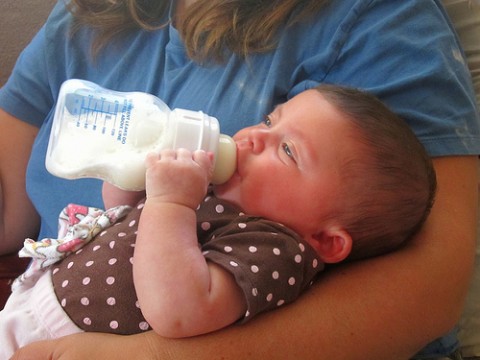Experts Agree Breast is Best?
While experts agree that “˜breast is best‘ there are many reasons why a woman would choose not to, or be unable to, breastfeed. There are many brands and varieties of infant formulas on the market. Of course, you should speak with your pediatrician before selecting an infant formula, but if he doesn’t have a preference, here’s an overview of the major differences.

Types
• Cows Milk ““ The most basic infant formula. This type of formula is usually altered slightly to more closely resemble breast milk by adding extra nutrients to create the perfect balance.
• Gentle ““ This is a good option for babies who have sensitive tummies and may not tolerate “˜regular’ formula too well. They may be slightly allergic to dairy or just need a more gentle formula.
• Lactose-free ““ This is one of the options for babies who are allergic to dairy or dairy products. Signs of an allergy include fussiness after eating, vomiting, diarrhea, gas or poor weight gain.
• Added rice starch ““ This formula has added rice powder to thicken the formula. It helps babies with acid reflux keep the food down, and not vomit it back up.
• Soy ““ Another option for lactose intolerant babies or those who are allergic to dairy. Instead of being made with a cow’s milk base, the formula uses soymilk so that it is better tolerated.
• Formula for premature babies ““ Premature babies have strict nutritional needs to support their tiny bodies. These formulas have additional calories, protein, fat and nutrients.
• Toddler ““ Also called “Next Step” formula, this product is designed for older babies who are ready to transition out of formula and into regular milk. This formula is not appropriate for younger babies.
• Protein Hydrolysate formulas ““ These formulas are made for babies with both dairy and soy allergies, and who can’t digest traditional formulas. They are generally well tolerated and less likely to cause an allergic reaction.